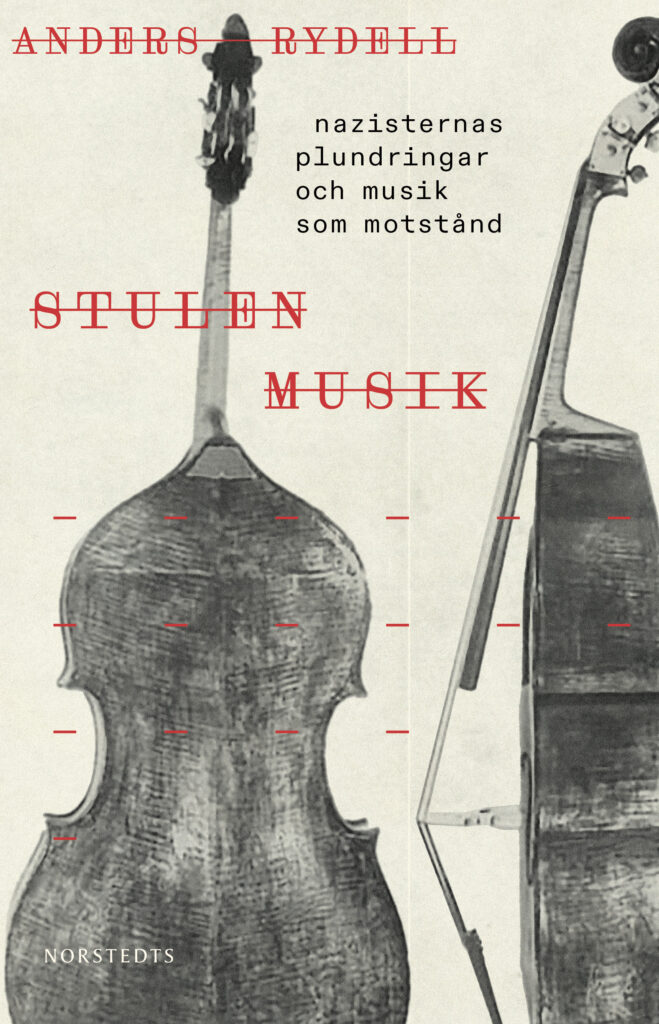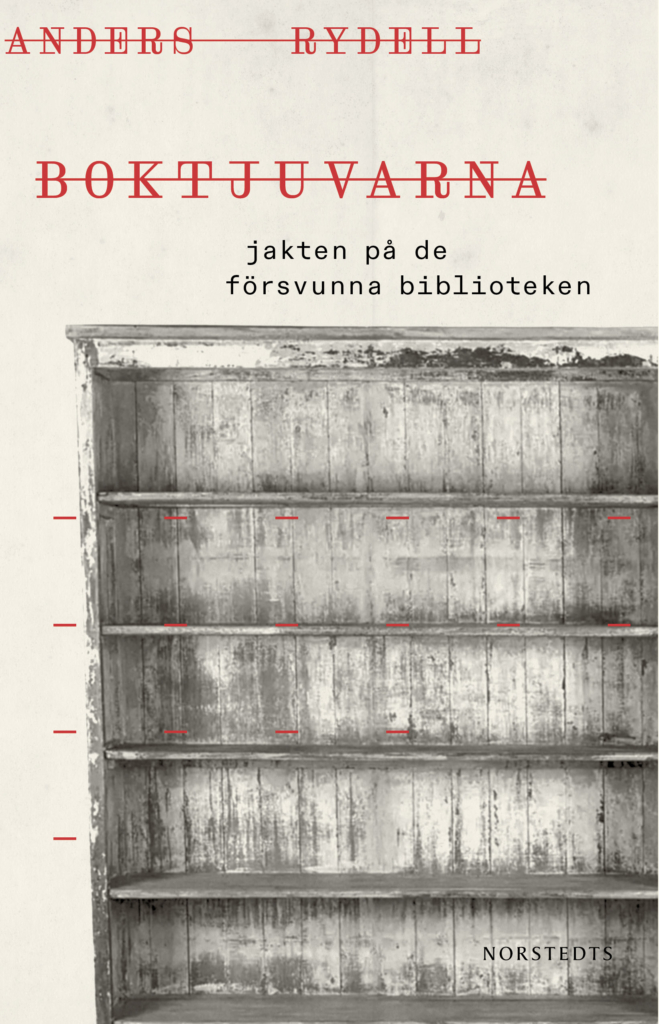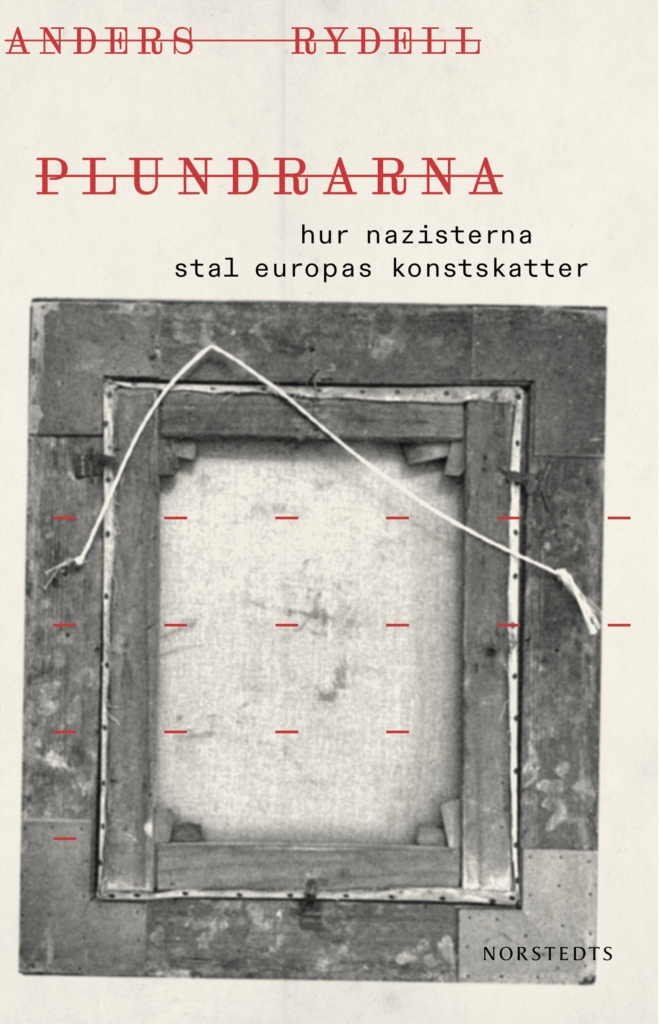
Stulen musik Stolen Music
Stolen Music tells the chilling stories of Jewish musicians Wanda Landowska, Arthur Rubinstein, Shony Braun, Alma Rosé, and Władysław Szpilman from the interwar period’s vibrant musical scene to the Nazis’ persecution. Parallel to these musicians’ fates is the story about music’s role in the Third Reich, and the wide-spread and systematic looting of tens of thousands of instruments, manuscripts, and books. Many of these are still lost to the world.
The special command Sonderstab Musik led the hunt for Europe’s foremost musical treasures, invaluable instruments and manuscripts from masters such as Bach, Mozart, and Beethoven. Headed by Herbert Gerigk, the aim of this musical looting was to obliterate Jewish influence over European music once and for all.
Stolen Music is not only a tale of the Nazis’ attempt to silence their opponents, but one about music as an act of resistance.
“[Stolen Music is] a book which paralyzes with its terrors and pleases with its high quality. It deserves great international attention. From the first 150 brilliant pages’ sharp exposé of the 19th century’s antisemites in different shapes and Wagner’s fanaticism to a later time, the book is easy to read, concrete, nicely disposed – with gruesome examples not only from the camps but from the thorough looting of, for example, nearly seventy thousand Jewish homes in France alone. No matter how well-read I am about the history of Nazism, [Stolen Music] is, through its delineation, so convincing on every page that I will not be able to forget it. May it be recognized according to merit!”
–Per Wästberg, former president of PEN International and member of the committee for the Nobel Prize in Literature.
“[Stolen Music is] a fantastic book.”
–David Lagercrantz
Reviews
-
“Stolen Music is just as captivating and immensely gripping as [Rydell’s] previous books about the Nazi assault on European culture. /…/ [Lev] Aronson and Arnold and Alma Rosé are just three out of a dozen Jewish stars from the European music scene, whom Anders Rydell follows and successfully crosscuts between, all while the Nazi persecution intensifies. /…/ Anders Rydell has written yet another rich and painful account of the European cultural life under the Nazi regime. An incredibly important story.”
-
“Rydell makes the universal power of music evident in an impressive way.”
-
“A gripping tale of the universal power of music. Don’t miss this!”
-
“Stolen Music is easy to read and offers a captivating introduction to the subject matter.”
-
“[Rydell] intersperses accounts and factual descriptions with his own work on the book. /…/ [I]t creates a rhythm in the storytelling which works surprisingly well and adds an extra dimension to the larger historical story. [Rydell] also makes meritorious retrospectives to the emergence of a new kind of antisemitism in later 19th century Germany. /…/ [Stolen Music] is frighteningly relevant today. /…/ Five out of five. Highly recommend!”
-
“Anders Rydell gets close to his chosen musicians and follows them on their gruesome escape from evil. Herein lies the book’s strength and beating heart. /…/ Most important is how Stolen Music displays the many overlooked aspects of the Nazis’ predatory behavior.”
-
“What Anders Rydell shows is that the Nazis essentially were nothing but bandits. Ideologically motivated and for a long time well-organized, sure, but bandits nonetheless. /…/ Stolen Music is first and foremost a story about a number of known Jewish musicians and their fates. /…/ Anders Rydell writes captivatingly and vividly. /…/ Fundamentally, Stolen Music is a very essential addition to our knowledge of the crimes of Nazism, and expansion to our knowledge about the power of music. A nice feature is that every chapter is equipped with a music reference – it heightens the reading experience to follow them.”
-
“The purely musical effect of the Holocaust is incomprehensible. Because, as Rydell writes, what could have become of a vital music scene like the one in Central and Eastern Europe, where the classical mixed with folk, jazz, and modernism, if it had been allowed to live on into our time? We will never know. The thought is overwhelming. And when it is, Rydell guides his reader back to the tangible. The actual stories become a wire to hold on to when stepping into the underworld. /…/ Stolen Music is a striking book.”
-
“What Rydell does is organize [previously researched] data into an absorbing story. It is no small feat: Stolen Music skillfully creates a sense of closeness to the people whose lives are depicted. By weaving together a number of episodically told fates, Rydell builds a panorama of the immense crimes.”
-
“In a skillful reporter’s fashion, [Anders Rydell] tells the story of instruments, sheet music, and correspondence between musicians being stolen, disappeared, squandered. But Rydell never loses sight of the people (…). I would say that the human fates protrude even more clearly through the losses of meaningful objects. /…/ In Stolen Music, the Jewish musicians’ fates are arranged like a well-structured score. The stories are perfectly detailed. /…/ [Rydell’s] trilogy does incredibly important work in getting us to imagine the world of art, literature, and music which has been lost to humankind due to the ideologically supported fear of the other. Stolen Music should have received the August Prize.”
-
“An essential read for history enthusiasts.”
-
“With immense knowledge and passion, Anders Rydell depicts the horrifying campaign in the Third Reich to erase Jewish musicians and their works from history.”
-
“It is about the people. To have to leave one’s violin. The deep violation of that (…). It is heartbreaking, and it says more than one hundred philosophies about the essence of music. The strength of Stolen Music is on the one hand the account of the extent – a large-scale robbery, as [Rydell] puts it (…). In a convincing way, Anders Rydell’s meticulous puzzling depicts that what he can convey is only the tip of an iceberg. We understand that there are many, many more untold tragedies. [Rydell] needs to sketch the big picture. But the reading experience is best when he gets close to the individuals.”
-
“The amount of literature about the Nazis’ crimes is massive by now. Yet, the impression is that Anders Rydell, with a combination of meticulous research, deep knowledge of the culture he depicts, and his effective reportage prose, has added new and important perspectives to the genre.”
-
“In a light way, Anders Rydell shares impressive knowledge and analysis with his readers. There’s also an underlying drama and thrill in all the atrociousness, and an undeniable sense of music. [Stolen Music] is a piece of music history.”
-
“[I]ncredibly heavy and important (…). With a light hand and heavy gaze, [Anders Rydell] deals with the Nazis’ looting of Europe’s cultural heritage.”
-
“[T]he cultural-historical approach is dominating [in Stolen Music], with a string of interesting portrayals. /…/ Rydell has completed an impressive project.”
-
“The thorough material in Rydell’s [Stolen Music] touches and engages the reader. I cannot help but feel an enormous discomfort when reading Rydell’s depiction of how the Nazis, after seizing power, step by step advancing to restrict, limit, and finally try to destroy and obliterate all traces of Europe’s rich Jewish cultural heritage. /…/ With Stolen Music, Anders Rydell has completed a terrifying, but amazingly readable, trilogy about the Nazis’ looting of Europe’s cultural heritage. In its rich compilation, [Stolen Music] shows how goal-oriented the Nazis were, with the ambition of altering European culture and adapt it to the Nazi ideology.”
-
“Rydell writes in an essayistic manner and offers an intriguing and in-depth look into this atrocious event.”
-
“Stolen Music is just as striking [as Rydell’s previous works], with its strong mix of facts, individual fates, and analyses. /…/ The reader gets to breathlessly follow individual musicians like composer Alma Mahler, who in her bag carries the manuscript to Anton Bruckner’s third symphony which Hitler is hunting. Together with her hysterical husband she climbs the Pyrenees toward safety. /…/ Through violinist Alma Rosé’s fate, from fame to captivity in Auschwitz-Birkenau, (…) you get insight into music as an act of resistance and how it eased the pain for the members of the orchestra but was hated by the other prisoners.”
- Author
-
 Anders Rydell
Anders Rydell
- Published
- 2024
- Genre
-
- Non-fiction
- Pages
- 342
- Reading material
-
Swedish edition
English sample translation
- Rights sold
-
France, Le Cherche Midi
Netherlands, Atlas Contact
Sweden, Norstedts

